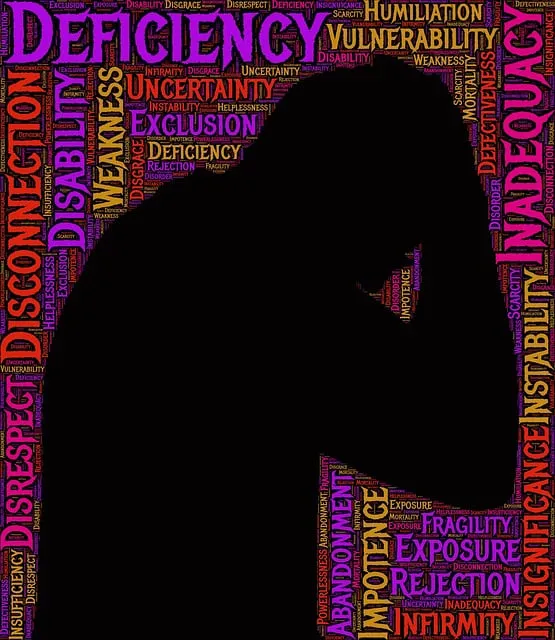The Wheat Ridge Kaiser Permanente (WRKP) mental health department faces high burnout risks due to complex patient needs, heavy caseloads, and stigma. They address this through multifaceted strategies like Mental Wellness Coaching Programs, which promote resilience and self-care, reducing emotional exhaustion and enhancing job satisfaction. WRKP's Community Outreach Program connects staff with support systems, fostering a culture of open communication and community. Peer support networks and continuous education further mitigate burnout, ensuring providers are engaged, motivated, and equipped to handle mental healthcare challenges effectively.
“The well-being of healthcare providers is paramount for delivering quality patient care. This article explores comprehensive strategies to prevent burnout among practitioners at the Wheat Ridge Kaiser Permanente Mental Health Department, a leading example in employee welfare. We delve into understanding burnout’s unique dynamics within this department, identifying risk factors and early signs. Additionally, we highlight effective stress management techniques, the power of supportive peer environments, and the significance of continuous education and resources, all crucial elements for fostering resilience and mitigating burnout.”
- Understanding Burnout Among Healthcare Providers at Wheat Ridge Kaiser Permanente Mental Health Department
- Identifying Risk Factors and Early Warning Signs
- Effective Stress Management Techniques for Mental Well-being
- Fostering a Supportive Work Environment and Peer Connection
- Continuous Education, Professional Development, and Access to Resources
Understanding Burnout Among Healthcare Providers at Wheat Ridge Kaiser Permanente Mental Health Department

In the dynamic landscape of healthcare, particularly within the Wheat Ridge Kaiser Permanente Mental Health Department, understanding burnout among providers is paramount. The mental health department, catering to a diverse patient population, often faces high-stress environments and demanding caseloads. This can lead to emotional exhaustion, depersonalization, and reduced personal accomplishment—the three core dimensions of burnout as defined by Maslach. The unique challenges faced by mental health professionals, such as navigating complex patient needs and managing the stigma associated with mental illness (Mental Illness Stigma Reduction Efforts), necessitate targeted interventions.
Burnout prevention strategies for healthcare providers in this context require a multi-faceted approach. Initiatives like the development of Mental Wellness Coaching Programs can offer support systems, promote self-care practices, and foster resilience. By prioritizing mental wellness coaching, the Wheat Ridge Kaiser Permanente Mental Health Department can enhance job satisfaction, improve patient outcomes, and create a more sustainable working environment for its dedicated professionals.
Identifying Risk Factors and Early Warning Signs

Burnout among healthcare providers is a significant concern, with many at risk due to the demanding nature of their work. Identifying risk factors and early warning signs is crucial in preventing this issue within organizations like Wheat Ridge Kaiser Permanente’s mental health department. Some key indicators include prolonged exposure to high-stress situations without adequate coping mechanisms, resulting in emotional exhaustion and decreased job satisfaction.
Healthcare providers may also face challenges related to cultural competency and communication strategies, which can contribute to burnout if not addressed. The Wheat Ridge Kaiser Permanente mental health department should prioritize training programs that enhance coping skills development and promote a supportive work environment. Additionally, regular check-ins and open dialogue about workload management and professional growth opportunities can help identify issues early on, allowing for timely interventions.
Effective Stress Management Techniques for Mental Well-being

Burnout among healthcare providers is a growing concern, but effective stress management techniques can help maintain mental well-being. The Wheat Ridge Kaiser Permanente mental health department offers valuable resources for staff to navigate challenging work environments. Their Community Outreach Program Implementation focuses on connecting employees with support systems within and outside the organization. Through this initiative, providers can access Mental Wellness Coaching Programs Development tailored to their unique needs, promoting resilience and healthy coping mechanisms.
Integrating mood management strategies into daily routines is essential. The mental health department encourages staff to prioritize self-care, including regular exercise, mindfulness practices, and adequate sleep. By fostering a culture of open communication and providing accessible resources like these, healthcare organizations can empower their providers to manage stress effectively, ultimately enhancing patient care and job satisfaction.
Fostering a Supportive Work Environment and Peer Connection

Fostering a supportive work environment is an essential strategy to prevent burnout among healthcare providers. At Wheat Ridge Kaiser Permanente’s mental health department, for instance, creating safe spaces for open communication and peer connections can significantly enhance job satisfaction. Encouraging empathy-building strategies, such as active listening and understanding each other’s perspectives, helps build a sense of community within the team. This, in turn, reduces feelings of isolation that often contribute to burnout.
Peer support networks play a pivotal role in stress reduction methods. By implementing conflict resolution techniques and fostering positive interpersonal relationships, healthcare providers can navigate challenging situations more effectively. These connections not only provide emotional support but also offer practical assistance during demanding times. When employees feel valued and heard, they are more likely to be engaged and motivated, ultimately mitigating the risk of burnout.
Continuous Education, Professional Development, and Access to Resources

Healthcare providers’ continuous education and professional development are vital strategies to prevent burnout. Regular training sessions on cutting-edge medical practices and research can keep practitioners engaged and motivated. Moreover, these opportunities enable them to stay abreast of the latest advancements in their field, fostering a sense of purpose and expertise. The Wheat Ridge Kaiser Permanente mental health department, for instance, prioritizes staff education, ensuring they are equipped with the most effective techniques for treating patients’ complex psychological needs.
Access to resources is another key component. This includes not only physical resources like well-equipped facilities but also mental health resources such as peer support groups and counseling services. Providing healthcare workers with tools for stress management, mood regulation, and cultural sensitivity in mental healthcare practice (Wheat Ridge Kaiser Permanente’s forte) can significantly reduce their workload and improve job satisfaction. Such initiatives create a supportive environment, enabling professionals to navigate the challenges of their roles effectively.
Burnout among healthcare providers is a pressing issue at Wheat Ridge Kaiser Permanente Mental Health Department, impacting staff well-being and patient care. By understanding the risk factors and early warning signs, implementing effective stress management techniques, fostering supportive work environments with peer connections, and promoting continuous education and resources, we can create a more sustainable and resilient workforce. Adopting these strategies, inspired by the Wheat Ridge Kaiser Permanente mental health department’s experience, can help mitigate burnout and enhance the overall quality of care provided to our patients.






